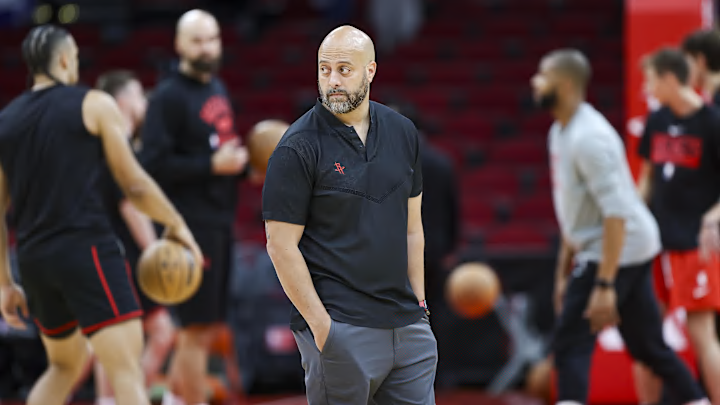There is a reason the Houston Rockets look like a serious threat in the Western Conference for the first time in years: General Manager Rafael Stone is playing a different game than most of the league's decision-makers. While others continue to hand out bloated contracts in an attempt to appease talent and avoid conflict, Stone has built his roster through discipline and leverage.
Stone's refusal to fold under pressure during player negotiations has helped Houston stay flexible and competitive. In the end, it may ultimately be his strategy that pushes this team into the championship picture sooner than expected.
Stone’s track record in Houston is beginning to age remarkably well. When it came time to extend Alperen Sengun, a foundational piece of the Rockets’ future, Stone did not cave to the pressure of awarding him a full max deal. The result was a contract that keeps one of the league’s most promising bigs in Houston for the long haul, without burdening the team’s salary cap in the years to come.
The same thing happened with Jalen Green before he was eventually traded. Green never received the kind of overpay many expected for a former second overall pick, which gave the Rockets more room to explore deals like the one that just brought Kevin Durant to Houston.
The Rockets' strategy under Stone has been gold
It is not just about the stars, either. Stone has found a way to retain high-level contributors on reasonable contracts, including Fred VanVleet, who restructured his deal into a far more affordable number for next season. That sort of outcome is only possible when front offices are willing to be firm, even with respected veterans. VanVleet remains one of the league’s best floor generals, and getting him at a discount will go a long way in helping the Rockets plug other holes on the roster before the postseason push begins.
Stone’s approach is especially important in the NBA’s new financial era. The second tax apron is already reshaping how teams do business, and those who overpay for average production will find themselves stuck on the margins. That has not happened in Houston. The Rockets have done more with less, and their financial outlook remains bright even after trading for Durant and retooling their supporting cast with smart additions like Dorian Finney-Smith.
This is how championship contenders are built in 2025: not just by talent acquisition, but by maximizing every dollar against the cap. Stone’s willingness to walk away from inflated demands has allowed Houston to retain depth, add elite pieces, and keep options open. It is the kind of disciplined, forward-thinking approach that front offices around the league should be studying. And it is exactly why the Rockets are now a team with legitimate championship aspirations.
